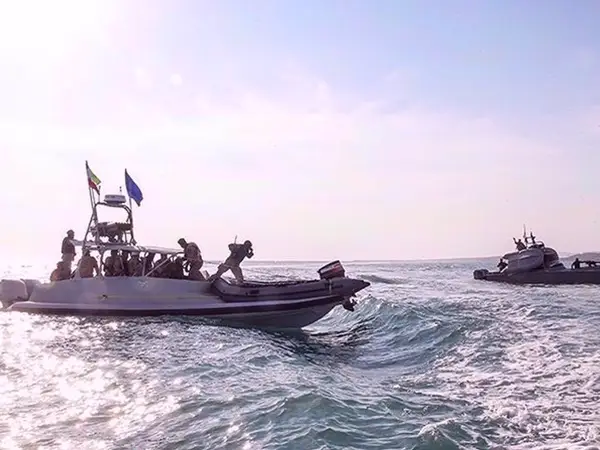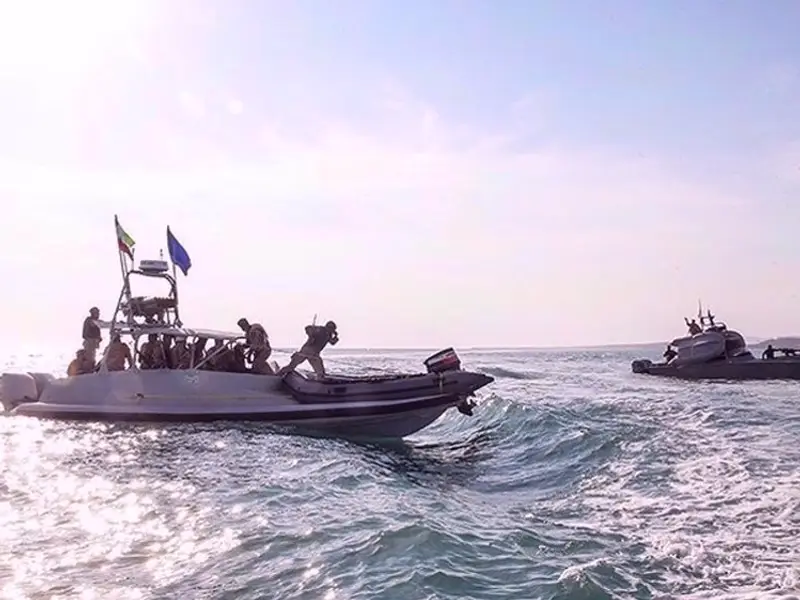A day after the US Navy reported that Iranian military speed boats were "harassing" a commercial vessel in the Strait of Hormuz, the IRGC claimed to have assisted the vessel.
Admiral Abbas Gholamshahi, an IRGC commander, claimed Monday that the boats were civilian and when the Command-and-Control Unit of the Strait of Hormuz learned about a distress call from a merchant ship with the flag of the Marshall Islands they tried to ease the worries of its captain.
US and UK navies acted when a merchant ship was being harassed by Iranian forces in the Strait of Hormuz, the US Navy said Monday.
The vessel sent a distress call on June 4 while transiting the straits, a relatively narrow waterway controlled in the north by Iran but considered international waters for commercial and naval traffic.
Iran has hundreds of fast attack boats that for years not only have harassed civilian vessels but, on many occasions, have come dangerously close to US and other warships in a show of force.
"The issue of providing security and aid to the vessels traveling in the Strait of Hormuz and the Persian Gulf is not something new, and it will definitely continue," added Gholamshahi, who appeared to be trying to back peddle the crisis.
US Navy guided-missile destroyer USS McFaul and UK Royal Navy frigate HMS Lancaster both received the distress call, and Lancaster launched a helicopter to provide surveillance. The US 5th Fleet also directed a P-8A Poseidon maritime patrol aircraft to monitor the scene, the Navy said.
However, the Iranian admiral called this narrative "absolutely false" saying that "when the commercial ship requested help, no extra-regional vessel was present" and basically the purpose of this narrative is "to justify the presence of extra-regional countries in the Persian Gulf".
As talks seem to be progressing with the US on Iran’s nuclear program, it would be extremely harmful to relations for the latest crisis to stand in the way.

